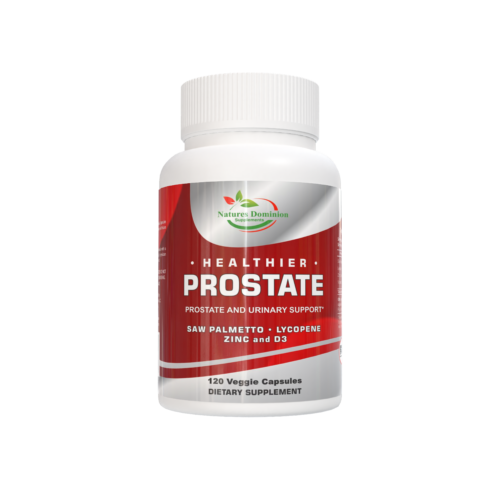Prostate supplement saw palmetto AND Prostate supplement side effects.
Saw palmetto is one of the most popular and well-studied ingredients in prostate supplements, particularly for managing symptoms associated with benign prostatic hyperplasia (BPH), a condition where the prostate gland becomes enlarged. Here’s a detailed look at saw palmetto as a prostate supplement:
What is Saw Palmetto?
Saw palmetto (Serenoa repens) is a type of palm native to the southeastern United States. The extract from its berries has been traditionally used to treat urinary and reproductive system issues, especially in men.
How Saw Palmetto Works:
- Inhibits 5-Alpha-Reductase: Saw palmetto is believed to inhibit the enzyme 5-alpha-reductase, which converts testosterone into dihydrotestosterone (DHT). DHT plays a significant role in prostate enlargement. By reducing DHT levels, saw palmetto may help prevent or reduce prostate enlargement.
- Reduces Inflammation: Saw palmetto has anti-inflammatory properties that may help reduce inflammation in the prostate, which can contribute to symptoms like frequent urination or pain during urination.
- Improves Urinary Symptoms: Many men take saw palmetto supplements to relieve symptoms of BPH, such as difficulty starting urination, weak urine stream, frequent urination (especially at night), and incomplete bladder emptying.
Clinical Evidence:
- Effectiveness: Research on the effectiveness of saw palmetto is mixed. Some studies suggest that saw palmetto can significantly improve urinary symptoms in men with mild to moderate BPH, while others show minimal benefit compared to a placebo.
- Dosage: The typical dosage of saw palmetto extract is 160 mg taken twice daily, or 320 mg once daily, usually standardized to contain 85-95% fatty acids and sterols.
Benefits of Saw Palmetto:
- Natural Treatment: As a herbal supplement, saw palmetto is a natural alternative for men who prefer not to take prescription medications like alpha-blockers or 5-alpha-reductase inhibitors.
- Fewer Side Effects: Compared to pharmaceutical treatments for BPH, saw palmetto is generally well-tolerated with fewer side effects. Common side effects, if any, are mild and may include stomach discomfort or headache.
Considerations:
- Varied Results: While many men report improvements in symptoms, others may not experience significant changes. The effectiveness can vary based on the individual’s health, the severity of BPH, and the quality of the saw palmetto supplement.
- Interaction with Medications: Saw palmetto may interact with other medications, particularly those that affect hormone levels, blood clotting, or other prostate treatments. It’s important to consult with a healthcare provider before starting saw palmetto, especially if you’re taking other medications.
Choosing a Saw Palmetto Supplement | prostate supplement saw palmetto:
- Standardization: Ensure the supplement is standardized to contain a specific percentage of active ingredients (fatty acids and sterols) to guarantee potency.
- Reputable Brands: Purchase from well-known brands that use third-party testing to verify the quality and purity of their products.
- Combination Formulas: Some prostate supplements combine saw palmetto with other ingredients like beta-sitosterol, lycopene, or zinc for enhanced prostate support.
Final Thoughts:
Saw palmetto is a widely used and generally safe option for supporting prostate health, especially in men experiencing symptoms of BPH. While results can vary, it may be a beneficial addition to a comprehensive approach to prostate care, including diet, lifestyle changes, and regular medical check-ups. Always Try the best prostate supplement Healthier Prostate.
Prostate supplement side effects
Prostate supplements, like any dietary supplements, can have side effects, although many men take them without experiencing any significant issues. The side effects vary depending on the ingredients in the supplement. Below are some common side effects associated with the most frequently used ingredients in prostate supplements:
1. Saw Palmetto
- Common Side Effects:
- Mild stomach discomfort or nausea
- Headache
- Dizziness
- Less Common but Serious Side Effects:
- Increased risk of bleeding, especially if taken with blood-thinning medications (e.g., aspirin, warfarin)
- Possible interaction with hormonal therapies
2. Beta-Sitosterol
- Common Side Effects:
- Gastrointestinal issues like indigestion, gas, or diarrhea
- Less Common Side Effects:
- Impotence or reduced libido (rare)
- Allergic reactions in individuals allergic to plants in the Asteraceae family
3. Pygeum
- Common Side Effects:
- Nausea
- Diarrhea or constipation
- Stomach discomfort
- Rare Side Effects:
- Allergic reactions, particularly in people sensitive to tree pollen
4. Lycopene
- Common Side Effects:
- Generally well-tolerated with minimal side effects
- In large doses, it may cause a harmless orange discoloration of the skin (lycopenemia)
- Rare Side Effects:
- Gastrointestinal issues in some cases
5. Zinc
- Common Side Effects:
- Nausea and vomiting (especially on an empty stomach)
- Diarrhea
- Stomach pain
- Less Common Side Effects:
- Copper deficiency with long-term, high-dose use
- Interference with the absorption of certain antibiotics
6. Nettle Root
- Common Side Effects:
- Mild gastrointestinal discomfort
- Diarrhea or constipation
- Skin rash or itching (in rare cases)
- Allergic Reactions: People allergic to nettle plants may experience more severe reactions.
7. Pumpkin Seed Oil
- Common Side Effects:
- Stomach discomfort or indigestion
- Mild headaches
- Allergic reactions in individuals sensitive to pumpkin
General Considerations | Prostate supplement side effects:
- Interactions with Medications: Prostate supplements can interact with prescription medications, particularly blood thinners, hormonal therapies, or drugs for managing high blood pressure or diabetes. Always consult with a healthcare provider before starting a new supplement, especially if you are on medication.
- Allergic Reactions: Individuals with allergies to certain plants, pollen, or foods should be cautious, as some ingredients may trigger allergic responses.
- Dosage Matters: Side effects are often related to the dosage. Sticking to the recommended dosage on the supplement label can help minimize the risk of side effects.
- Quality of Supplements: The risk of side effects can also depend on the quality of the supplement. Supplements from reputable brands that use high-quality, tested ingredients are less likely to cause adverse effects.
When to Seek Medical Advice:
If you experience severe side effects or symptoms that concern you, such as chest pain, severe headaches, or signs of an allergic reaction (such as swelling, hives, or difficulty breathing), stop taking the supplement and consult a healthcare provider immediately.
Prostate supplements can offer benefits, but they should be used thoughtfully, especially if you have underlying health conditions or are taking other medications.




